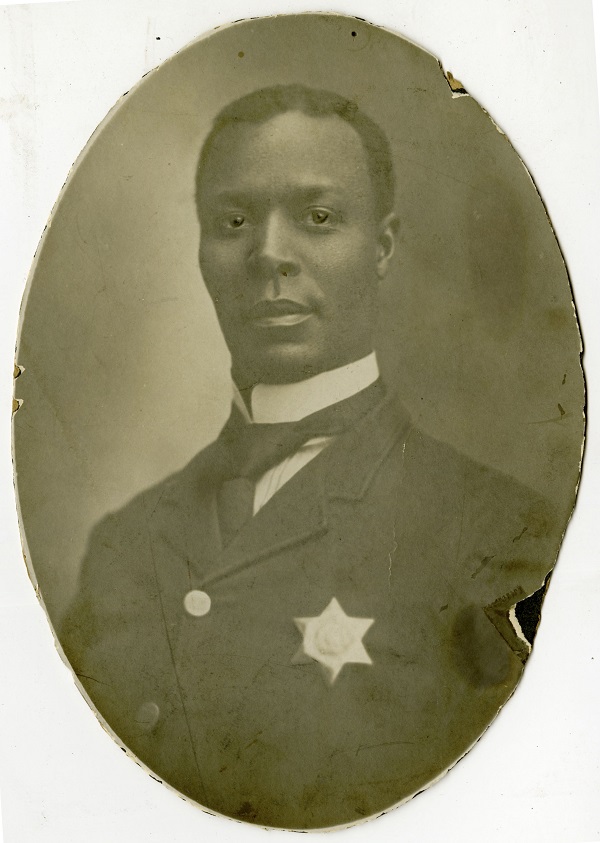Lafayette Alonzo Tillman, born on March 15, 1858, in Evansville, Indiana, would go on to become one of the exceptional black leaders in Kansas City by the turn of the twentieth century.
Little is known about Tillman's early life, but he graduated high school and managed to attend Oberlin College of Ohio and embarked on a singing career as a bass. He supplemented his singing by working as a barber and restaurant owner. By 1889, Tillman had moved to Kansas City, Missouri, where he opened a new barber shop and became a leader in the black community. He also studied law at the Kansas City School of Law but never completed a formal degree.
After the onset of the Spanish-American War nine years later, he enlisted in the U.S. Army, earned the rank of first lieutenant, and joined the black Forty-ninth Infantry Regiment in its battle against Philippine insurgents between 1899 and 1902. Soon after Tillman returned to Kansas City, its white residents recognized his patriotic service and skills by hiring him as the second black policeman in the city's history.
The opportunity for blacks like Tillman to be hired into public service in Kansas City was quite unusual in its day. Black policemen even had authority to arrest white law-breakers, which would have been seen as radical in many communities. Furthermore, most private businesses and residential neighborhoods accepted black customers on a non-segregated basis until more formalized segregation gained a footing by the 1920s.
Although seemingly progressive in race relations, Kansas City was still a harsh environment for virtually all blacks who did not have the extraordinary luck, resources, and determination of Lafayette Tillman. By 1920 the city had only 11 police officers, one detective, and one fireman who were black.
Considering more than 10,000 blacks resided in the city, these numbers were quite small indeed. By many estimates from the era, three-quarters of Kansas City's black residents earned less money than was required for a minimal lifestyle, and few were hired for anything but the most menial jobs. Most lived in the substandard neighborhoods that had been abandoned by whites and had few opportunities for education and careers. Despite these grim odds, some black citizens like Lafayette Tillman occasionally managed to garner the respect and admiration of the white community.
Tillman served as a Kansas City police officer until his death from an intestinal disease in 1914. He was survived by a son and two daughters who also took up successful careers. His son, L. M. Tillman, went on to serve as a medical doctor at Wheatley-Provident Hospital, which was the first hospital in Kansas City to cater specifically to black patients. His daughters became school teachers in Kansas City and in Tipton, Missouri.
Read a biographical sketch of Lafayette Alonzo Tillman prepared by Susan Jezak Ford for the Missouri Valley Special Collections, Kansas City Public Library.
- Biography of Lafayette A. Tillman (1859-1914), Barber, Soldier, and Policeman
View images relating to Lafayette Tillman and his family that are a part of the Missouri Valley Special Collections.
- 1907 map that includes the Allen Chapel AME where Lafayette Tillman worshipped and sang in the choir
- Kansas City School of Law, where Tillman studied law before leaving for the Spanish-American War
- Wheatley-Provident Hospital
Check out the following books about race relations in Kansas City history.
- A City Divided: the Racial Landscape of Kansas City, 1900-1960, by Sherry Lamb Schirmer; a comprehensive examination of increasing racial tensions and segregation; including geographic analysis using maps
- Take Up the Black Man's Burden: Kansas City's African American Communities, 1865-1939, by Charles E. Coulter; a history of the organizations and individuals that comprised the black community of Kansas City
- Black Americans and the White Man's Burden, 1898-1903, by Willard B. Gatewood; details black Americans' involvement in the Philippines, of which Lafayette Tillman was a part
Continue researching African American history in the Kansas City area using the archival resources of the Black Archives of Mid-America.
Information about the details of Lafayette Tillman's life is limited, but some archival materials exist.
- Vertical File: African Americans--Prominent, Lafayette Tillman, Missouri Valley Special Collections; news clippings
- Vertical File: Ramos--Lincoln Collection--Vertical Files: Tillman, Lafayette A., Missouri Valley Special Collections; correspondence and a prayer book owned by Tillman
- Vertical File: Ramos --Lincoln Collection--Vertical Files: Tillman, Lafayette A.--Photographs, Missouri Valley Special Collections; photographs of Tillman
- Box C14, Tillman, Lafayette Alonzo, The Kansas City Museum, Kansas City, Missouri; personal papers and records
- Box PC1.131 Tillman, Lafayette Alonzo, The Kansas City Museum; photographs/portraits
References:
Coulter, Charles E. Take Up the Black Man's Burden: Kansas City's African American Communities, 1865-1939. Columbia, MO: University of Missouri Press, 2006.
Ford, Susan Jezak. "Biography of Lafayette A. Tillman (1859-1914), Barber, Soldier, and Policeman." Missouri Valley Special Collections, 1999.
Montgomery, Rick and Shirl Kasper. Kansas City: An American Story. Kansas City, MO: Kansas City Star Books, 1999.
Schirmer, Sherry Lamb. At the River's Bend: an Illustrated History of Kansas City: Independence and Jackson County. Woodland Hills, CA: Windsor Publications, 1982.



